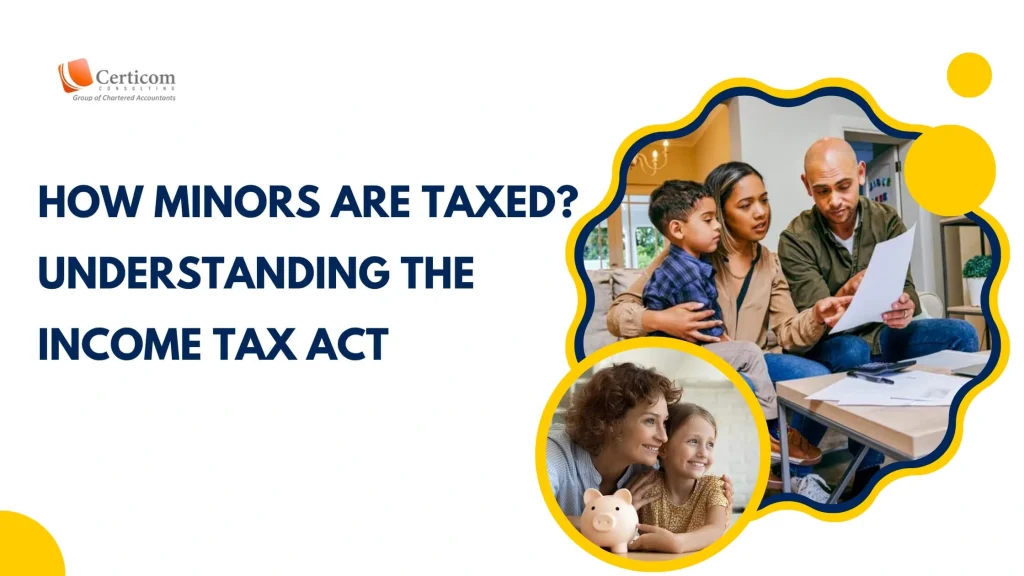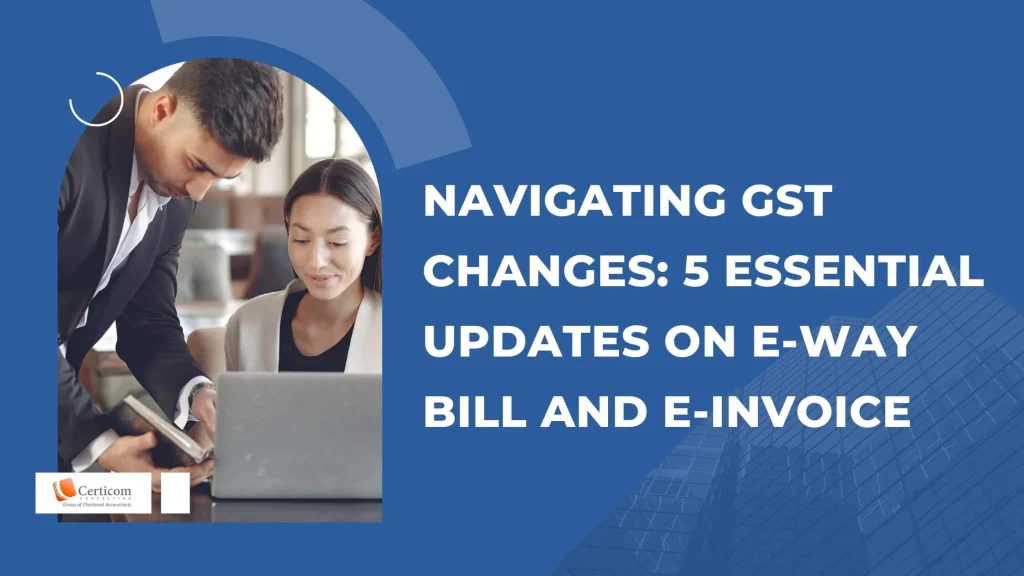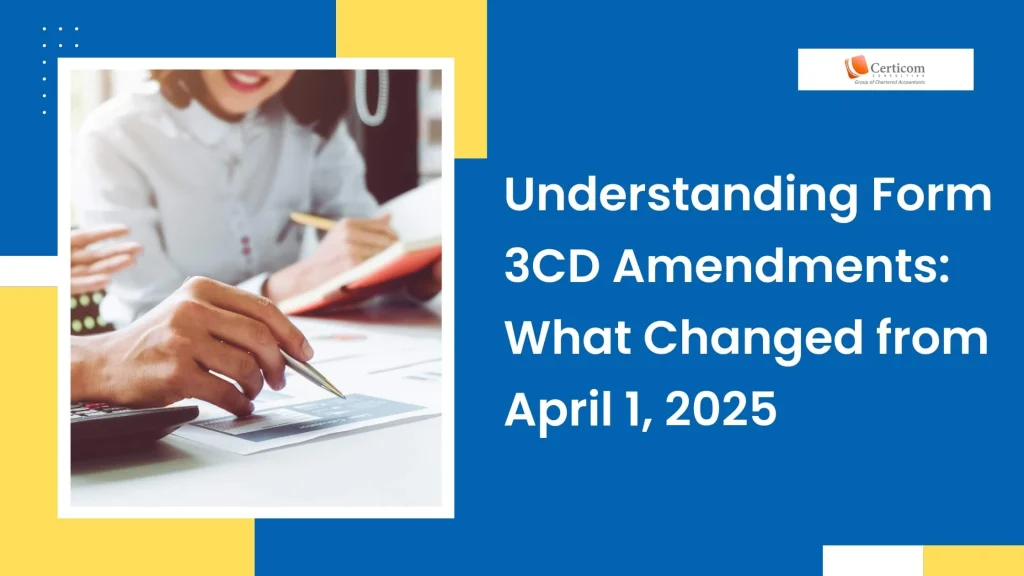- Have any questions?
How Minors are Taxed? Understanding the Income Tax Act

Understanding the Taxation of a Minor's Income
Under Section 64(1A) of the Income Tax Act, 1961, the income earned by a minor child is generally clubbed with the income of the parent whose total income is higher. However, there are exceptions to this rule:
If the minor earns income through manual work, such as labor, or by utilizing their skills, talents, specialized knowledge, or experience (e.g., acting, playing sports, or performing in a TV show), the income is not clubbed with the parent’s income.
If the minor suffers from a disability as specified under Section 80U, their income is also not clubbed with the parent’s income.

Allocation of Minor's Income Between Parents
If both parents are living together, the minor’s income is included in the income of the parent with the higher total income.
In case of divorce or separation, the minor’s income is clubbed with the income of the parent who has custody and provides for the child.
Once the income is clubbed with a particular parent, it remains with that parent in future years unless there is a significant change in circumstances.
Exemptions Available for Parents
Section 10(32) of the Income Tax Act provides an exemption of Rs. 1,500 per child whose income is clubbed with the parent’s income. For instance, if a father includes the income of two minor children, totaling Rs. 50,000, he can claim an exemption of Rs. 3,000, and only Rs. 47,000 will be taxable under his income.
Tax Planning Strategies for Minor’s Income
1. Investing in Tax-Exempt Instruments
One way to reduce tax liability is by investing the minor’s income in tax-free financial instruments such as:
Public Provident Fund (PPF)
Tax-free bonds
Other government-backed tax-exempt schemes
This ensures that future earnings are exempt from taxation, preventing clubbing provisions from applying.
2. Investing in Capital Appreciation Assets
Another strategy is to invest the minor’s income in assets that appreciate over time rather than generate regular taxable income. Suitable investments include:
Real estate (land and buildings)
Precious metals (gold and silver)
Growth-oriented mutual funds
Equity shares
By focusing on capital gains rather than recurring income, the tax burden can be minimized. Long-term capital gains tax rates are generally lower (around 12.5%) compared to regular income tax rates (up to 30%).

3. Utilizing a Discretionary Trust
Setting up a discretionary trust for a minor can be an effective tax-saving tool. As per Section 164 of the Income Tax Act, discretionary trusts are generally taxed at the maximum marginal rate of 30%. However, there are exceptions:
If the trust is created through a will, taxation is at normal slab rates.
If the trust’s beneficiaries have no taxable income, it is taxed as an Association of Persons (AOP) at standard rates.
When a minor is a beneficiary of such a trust, their income is not clubbed with the parent’s income, resulting in potential tax savings.
Proper tax planning can significantly reduce the tax liability associated with a minor’s income. By strategically investing in tax-exempt schemes, capital appreciation assets, or discretionary trusts, parents can ensure that their child’s income is managed in a tax-efficient manner. Understanding these provisions helps in making informed financial decisions, minimizing tax liabilities while securing the minor’s financial future.
Related Post
Pros and Cons of Presumptive Taxation Scheme for Professionals
Understanding Form 3CD Amendments: What Changed from April 1, 2025
Book A One To One Consultation Now For FREE
How can we help? *




